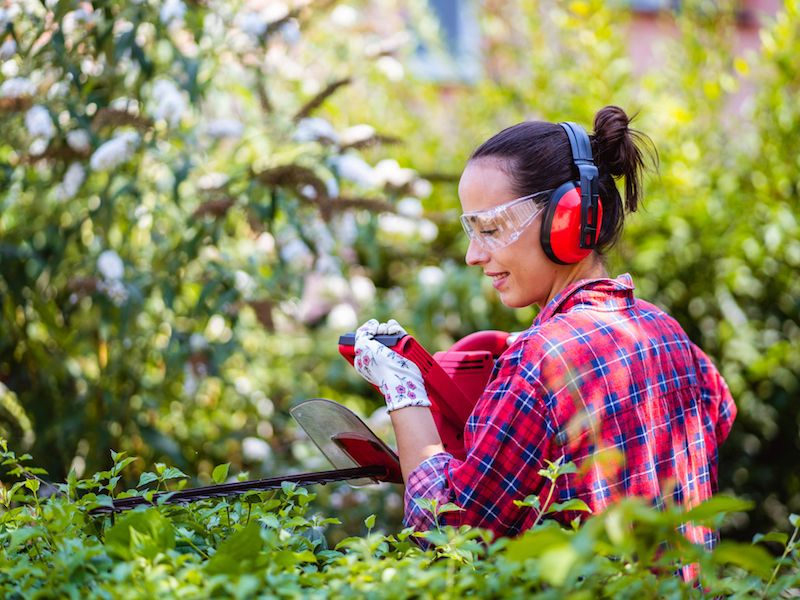
Eating right and safeguarding your hearing have some parallels. It’s hard to know where to start even though it sounds like a good idea. If there aren’t any obvious noise risks and you don’t think your environment is especially loud, this is especially true. But your ears and senses can be stressed by day-to-day living, so your auditory acuity can be preserved if you practice these tips.
If you want to continue to enjoy the sounds around you, you need to do everything you can to slow down the impairment of your hearing.
Tip 1: Hearing Protection You Can Wear
Using hearing protection is the most sensible and simple way to safeguard your ears. This means taking basic steps to minimize the amount of loud and damaging noises you’re exposed to.
For many people, this will mean utilizing hearing protection when it’s warranted. Two basic forms of protection are available:
- Ear Muffs, which are put over the ears.
- Ear Plugs, which are put in the ear canal.
Neither form of hearing protection is inherently better than the other. Each style has its benefits. What’s significant is that you get some hearing protection that you feel comfortable with.
Tip 2: When Sound Gets Dangerous, be Aware of It
But how can you tell when to wear hearing protection? Noise that is painful is commonly considered harmful. But much lower levels of sound can harm your ears than you might believe. The sounds of traffic, as an example, are loud enough to start damaging your hearing after just a couple of hours. A vital step in safeguarding your hearing, then, is recognizing when sound becomes harmful.
The following threshold is when sound becomes harmful:
- 95-100 dB: This is the normal volume of your earbuds or the level of farm equipment. This volume of sound becomes damaging after 15-20 minutes.
- 85 decibels (dB): This volume of sound is dangerous after roughly two hours of exposure. Your hairdryer or a busy city street are both scenarios where you will find this volume of sound.
- Over 100 dB: This is where you can damage your hearing very rapidly. Anything over this limit can damage your hearing in minutes or seconds. For example, rock concerts and jet engines will injure your ears in 30 seconds.
Tip 3: Use Your Phone as a Sound Meter
We can take precautions to minimize our exposure, now that we have a concept of what volumes will be hazardous. The trick is that, once you’re out in the real world, it can be difficult to gauge what’s too loud and what isn’t.
That’s where your smartphone can become a handy little tool. There are dozens of apps for iPhone, Android, and everything in between that turn your device’s microphone into a sound meter.
In order to get an idea of what harmful levels of noise really sound like, use your sound meter to confirm the decibel level of everything you are hearing.
Tip 4: Monitor Your Volume Settings
A smartphone with earbuds is commonly the way people listen to music these days. Your hearing is put at risk with this setup. Your hearing can be considerably damaged if you keep your earbuds too loud over a long period of time.
Somonitoring the volume control means safeguarding your ears. You should not increase the volume to drown out sounds somewhere else. in order to make sure that volume doesn’t get too loud, we recommend using volume settings or app settings.
If your hearing begins to decline, earbuds can become a negative feedback loop; in order to compensate for your faltering hearing, you may find yourself continuously rising the volume of your earbuds, doing more harm to your ears in the process.
Tip 5: Have Your Hearing Examined
You may think of a hearing test as something you get when your hearing has already started to decline. Without a standard to compare results to, it’s not always easy to identify a problem in your ears.
Scheduling a hearing screening or exam is a good way to generate data that can be used for both treatment and analytic purposes, ensuring that all of your future hearing (and hearing protection) decisions have a little bit of added context and information.
Keep an Eye on Your Ears
It would be perfect if you could continuously safeguard your hearing without any problems. But there are always going to be challenges. So anytime you can and as often as possible, safeguard your hearing. You should also get your hearing examined regularly. Hopefully, these guidelines will help you get a good start.

